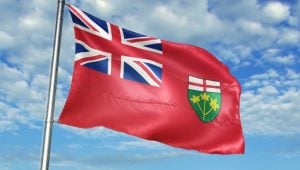The Environment: A Thriving but Little-Known Sector of Employment.
 Publié le 13 April 2018
Publié le 13 April 2018
Water treatment, air quality analysis, soil decontamination, waste management: employment in the environmental services is booming and has a lot to offer newcomers to the Province of Québec.
This sector hires as many as 65,000 workers in environment-related organizations within the province. Some businesses, most notably in the mining industry, also need people trained in the various environmental specializations.
According to EnviroCompétences, the sector committee that deals with this segment of the workforce, there are about 85 different professions connected to this field. “We are especially in need of waste management and air quality specialists since training programs aren’t nearly as numerous as we need” says Dominique Dodier, General Director for EnviroCompétences. “The personnel shortage also extends to water treatment facilities”.
This should sound promising to any immigrant, no matter his or her qualifications, as many of these jobs are open to candidates who do not have a diploma. “Waste collection truck drivers are hard to find even though the salary is in the $ 60,000 range and no special training is required” she adds.
Learning about the Local Regulation
Despite this great potential for employment, immigrant workers who are interested in the environmental service industry must often face the hurdle of getting their qualifications recognized and of being allowed to engage in their trade.
For example, environmental engineers must meet the requirements of Ordre des ingénieurs du Québec, the body that regulates access to this profession. The procedure involved in getting the proper authorizations is a time-consuming and tedious affair. Chemists must also obtain the proper permit from Ordre des chimistes du Québec though this process is “easier” that the one for OIQ, according to Dominique Dodier.
Another obstacle for immigrants is the need to improve their usually insufficient knowledge of provincial rules concerning environmental issues. “This is the main challenge here” says Dominique Dodier. Knowing more about the regulations in effect within the province requires attending a lot of training in this field of activity. Réseau-Environnement’s web site lists all the training sessions to be held within the province.
Aim for the Regions
Even though it has the greatest concentration of environment service jobs in the province, Montreal is the area least affected by the shortage of workers in this sector of activity. The choice to settle down away from the big cities and aim for the regional jobs is often a better option. “This is a very good way to get the lay of the land for newcomers to the province” adds Mrs Dodier.
Hamane*, a young woman from Morocco who came to study biotechnology at Université de Sherbrooke, agrees. Having obtained her degree, she moved to Montreal. “The market over there is saturated. Finding a first job isn’t easy, especially if you’re an immigrant” she says, noting that she knew of PhDs who had to work as technicians.
Her chance to work in her chosen field of water quality came to her in a small community on Côte-Nord. “I tell my friends in Montreal to come to the regions as there are jobs to be found and the quality of life is good”.
The best salaries in more remote areas are those offered by mining companies. As a matter of fact, this is what eventually became Hamane’s line of work: she is now an environmental consultant for a mining concern in Côte-Nord. Dominique Dodier adds a note of caution, however: “A lot of mines are in very remote locations. Working and living conditions tend to be outside the usual norms. A lot of employees will work for ten 12-hour days then get a week off”.
*The name has been altered.







